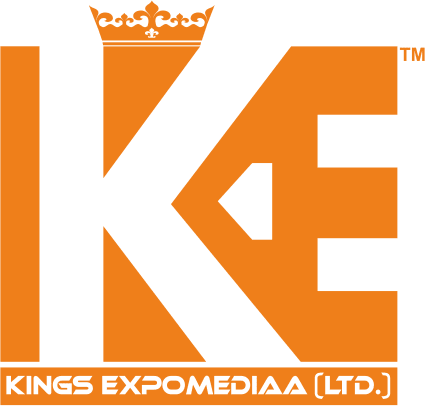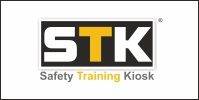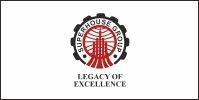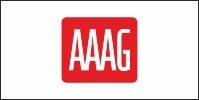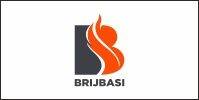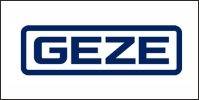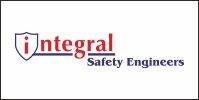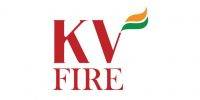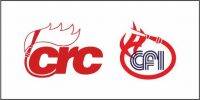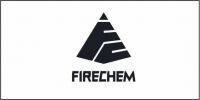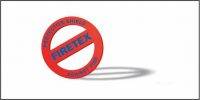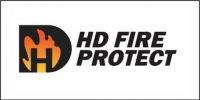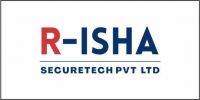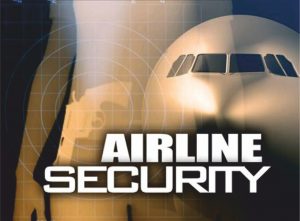 Crime is a perpetual disease, a plague that was recently proclaimed by the Centers for Disease Control (CDC), as a substantial public health issue (Peak & Glensor, 1996, p. xvii). Law enforcement struggles to act as a prophylaxis to crime. Crime's epidemic is growing and finding new venues with which to spread its havoc. More specifically crime has mobilized itself in society's most vital link, transportation. Transportation plays an important role in a community both socially and economically. Communities depend on mass transit via railroads, airlines, ports and canals to transport their assets: people, valuable goods, and vital information (DeGeneste & Sullivan, 1994, 3). Unfortunately, mass transit is viewed as a suitable target for criminal mischievousness; mass transit breeds criminal activity. Terrorism, drug trafficking, smuggling, cargo theft, organized crime, and the threat of the spread of hazardous cargo, can render unspeakable damage to public safety (DeGeneste & Sullivan, 1994, 3). One of the most memorable events was that of the recent terrorist attacks on The World Trade Centers and the Pentagon.
Crime is a perpetual disease, a plague that was recently proclaimed by the Centers for Disease Control (CDC), as a substantial public health issue (Peak & Glensor, 1996, p. xvii). Law enforcement struggles to act as a prophylaxis to crime. Crime's epidemic is growing and finding new venues with which to spread its havoc. More specifically crime has mobilized itself in society's most vital link, transportation. Transportation plays an important role in a community both socially and economically. Communities depend on mass transit via railroads, airlines, ports and canals to transport their assets: people, valuable goods, and vital information (DeGeneste & Sullivan, 1994, 3). Unfortunately, mass transit is viewed as a suitable target for criminal mischievousness; mass transit breeds criminal activity. Terrorism, drug trafficking, smuggling, cargo theft, organized crime, and the threat of the spread of hazardous cargo, can render unspeakable damage to public safety (DeGeneste & Sullivan, 1994, 3). One of the most memorable events was that of the recent terrorist attacks on The World Trade Centers and the Pentagon.
History of the Airline Industry
The airline industry has grown a great deal in comparison to the past. According to the authors of the book Policing Transportation Facilities, "twenty years ago airport police were viewed as a little more than custodians" (DeGeneste &Sullivan, 1994, p.59). Airports now are even larger and more complex than ever. Airlines provide those who use their facilities with a swifter and more efficient form of transportation. The population of an airport now exceeds that of a medium-sized city. According to DeGeneste and Sullivan, "Airports are intertwined with a mesh of runways, hangars, warehouses, terminals, container stations, high risk storage areas, parking lots, truck depots, vehicle storage centers, car rental businesses, gas stations, restaurants, and banks which make airports even more vulnerable to criminal activity" (1994, p.59-60). Airport police have many concerns to deal with on an average day. These concerns range from normal police procedures such as traffic enforcement and auto thefts, to the abnormal violations such as ticket fraud and thefts, as well as homeless persons living within the facility (DeGeneste and Sullivan, 1994).
Compared to early aviation history airlines have grown dramatically, and police today are confronted with a complex list of duties and obligations. These obligations have occurred due to the rise in terrorist activity. Americans' everyday lives are now bombarded with threat levels and nightly news of terrorist letters and threats.
Attack on the United States
September 11, 2001, is a day that will never be forgotten by Americans. That day brought to light security issues that most Americans were oblivious to: most Americans' lived under a false sense of security. To most Americans terrorist attacks were something that happened to other countries and were never an issue in their own. Once the attack on the Trade Towers and the Pentagon occurred, everyone seemed to realize that as a nation, they were not as secure as they had thought. Nineteen terrorists on the morning of September 11, 2001, managed to breach security check points and personnel and board four unsuspecting commercial airlines; these terrorists left a scar on America that unforgettable day accounting for countless deaths, shattered families, and a strong wake-up call for a much needed check up on America's security, in particular airline security (Kilroy, 2003, 1).
The flights involved in the terrorist attack were the American Airlines Flight 11, United Airlines Flight 175, American Airlines Flight 77, and United Airlines Flight 93. A total of 213 passengers, 25 flight attendants, 8 pilots, and the 19 terrorists were killed as a result of the attack (Kilroy, 2003, 3). The terrorists targeted two of the most prominent U.S. buildings, the World Trade Center and the Pentagon. If it had not been for the courageous passengers on United Airlines Flight 93, the White House and/or the Capitol Building would have been destroyed much like the other two buildings (Kilroy, 2003, 3). At the World Trade Center 524 casualties were confirmed, while 3,822 still remain missing. At the Pentagon there were 125 casualties confirmed making both a grave reminder that security measures must not be ignored (Kilroy, 2003, 4). Therefore, security became the topic of many discussions around the country. Following the 9/11 events, the airline industry has made great improvements. Security professionals were now seen as the major defenses to the terrorism threat (McCamey, 2001).
Implementation of the New Security Guidelines
The security industry flourished after the 9/11 attacks. The need for security and how it was going to be implemented was top priority. According to McCamey, " . . .a long war on terrorism is sending multinational companies into the arms of private security organizations" (2001, p.1). Many companies wanted to upgrade security within their buildings to ensure the safety of their employees. According to Embree and Wicks, "As the need to protect people and assets grow, it's become equally important to control and monitor those who need access to what is protected" (2003, p. 35). This could be done in a variety of ways: from introducing CCTV cameras into the workplace or upgrading the security associated to the accessibility of the building security personnel had their hands full.
The airline industry is one the fastest industries to upgrade their security. Since the terrorist attacks occurred from highjacked airplanes, the airline industry had to establish new security measures to allow people to feel safe while flying. Shortly after the terrorist attack on the United States, President Bush provided twenty billion dollars for the upgrading of intelligence and security. These changes involved stricter background checks and the tougher security requirements on baggage checks (McCamey, 2001).
Terrorism and the Role of Security Professionals
What is terrorism? Terrorism, according to the Federal Bureau of Investigations (FBI), is "an unlawful use of force or violence against persons or property to intimidate or coerce a government, the civilian population, or any segment thereof, in furtherance of political or social objectives"(Conley, 2003b, 198). It is an unsettling reality, but terrorist operate and work in and around our everyday lives (Conley, 2003b). The role a security officer has is important when counteracting terrorism, especially in such an establishment which caters to millions of people traveling from all parts of the world. This role has become more prevalent following the terrorist events on 9/11 (Conley, 2003b).
Security officers are employed to ensure the safety of the assets they are assigned to protect (Conley, 2003a). As Tom M. Conley states, "it is the security officer who is on the front line" (2003b, 200). Security officers are intimate with their work environments. Unlike law enforcement personnel such as the FBI or CIA who are not employees of the airport, a security officer is able to detect minor disparities in their work environment and abruptly address those abnormalities (Conley, 2003b). Security officers must be able to conduct activities outside of observation and patrol. These activities include baggage checks and vehicle checks, screening passengers and personnel, and operating detection equipment such as x-ray machines (Hertig, 2003, 203). Alongside the role a security officer plays, there are a number of new requirements that are addressed in the airline industry.
Transportation Security Administration
The new security requirements had short and long-term goals. The new requirements were in enacted November of 2001. The reason for this was that President Bush wanted to make sure that the heightened security would take effect before the holiday seasons of Thanksgiving and Christmas which
are two of the largest traveling times of the year (Abrams, 2001). Congress, on November 19, 2001, constructed the Aviation and Transportation Security Act (ATSA). The ATSA formed the Transportation Security Administration (TSA), which was formerly headed under the Department of Transportation. On November 25, 2002 following the construction of the Homeland Security Act, TSA was assigned to the Department of Homeland Security (Dillingham, 2003). The TSA was developed in order to improve the quality of airline security following the September 11, 2001 events; shortly after the TSA was developed, roughly 65,000 new federal personnel were employed.
New Requirements
Since the new regulations came fairly quickly, the goals were set in short and long terms. According to Jim Abrams, some of the short term goals included "criminal background checks on 750,000 airport employees, the presence of more law enforcement, the screening of all checked baggage with whatever means available, including X-ray machines and hand inspections, the placement of more air marshals on flights, and more passengers will be pre-screened, with more cross-checking with FBI and other watch lists for suspicious passengers" (2001). As of 2003, the department of Homeland Security, headed by Tom Ridge, made the decision to increase the number of air marshals by 5,000 (Regional, 2003). Those short-term affects were to happen within the first year of implementation. The long term affects of the new security on airlines were: "A new Transportation Department agency put in place to oversee all transportation security measures, all 28,000 airport baggage screeners [are] federal workers, all checked baggage is to be inspected with explosives detection machines, [and] Trusted-passenger programs will be implemented, using new technologies to identify passengers and expedite screening” (Abrams, 2001). Most of the new regulations proposed security of the baggage and the passengers on the plane. According to the TSA, as quoted in the article by Gerald L. Dillingham, “[The TSA has] confiscated more than 4.8 million prohibited items (including firearms, knives, and incendiary or flammable objects) from passengers" (2003, p. 8). The Department of Homeland Security has also backed up this fact by stating "airport screeners have, since February 2002, intercepted more than 7.8 million items, including 1,437 firearms, 2.3 million knives, and 49,331 box cutters – the terrorists' weapon of choice on 9-11. Attempts at concealment included razor blades hidden in tennis shoes" (Gips, 2003).
Personal Security
However, since it is obvious from the September 11 attacks, a passenger once on the plane can be just as dangerous as a bomb. Therefore, the passenger themselves need to be searched for weapons as well as their carry-on luggage. Passengers have also noticed more security changes. The carry-on luggage is searched more carefully and hand searches of bags are not as uncommon as they once were. Passengers themselves might be searched more carefully with wand and pat down searchers rather then the walk through detectors (Abrams, 2001). Also their vehicles are also checked for bombs upon arriving at the airport even if one is there just to pick up a loved on, each car is checked by a security officer.
More searchers were not the only things passengers noticed when flying. Many regulations to carry on and check in also changed. "Air travelers are limited to one carry-on bag and one personal item (such as a purse or briefcase) on all flights" (Airport, 2003). When a passenger is checking in they are required to have a government issued photo ID, which could also be checked at multiple points throughout the airport, as well as proper documentation of reservations from the airline if one uses an E-ticket (Airport, 2003). Another difference is the number of people allowed in the gate area. Before the terrorist attacks any person was allowed to see their loved one to the gate and watch the plane depart. However, since the attacks only passengers are allowed past the screening checkpoints to the gate.
Conclusion
The terrorist attacks on 9/11 were one of many terrorist attacks that ravaged our country, but it is and still remains to be the most memorable one. The death toll is unknown to this day, three years following the tragic events; victims and families are still not at peace. September 11, 2001 was a much needed wakeup call for the airline industry; security measures were under heavy reconstruction following the events. Today the role of a security professional is a complex one. Two years following the 9/11 attacks, airline security still seem to remain stricter. However, people seem to have acclimated themselves to these new changes and no longer gripe about the long lines and time restraints the new regulations have caused. People tend to understand that for their safety these regulations had to occur and seem to take the long lines and having to come to the airport even earlier in stride. The new security measures have become routine.


